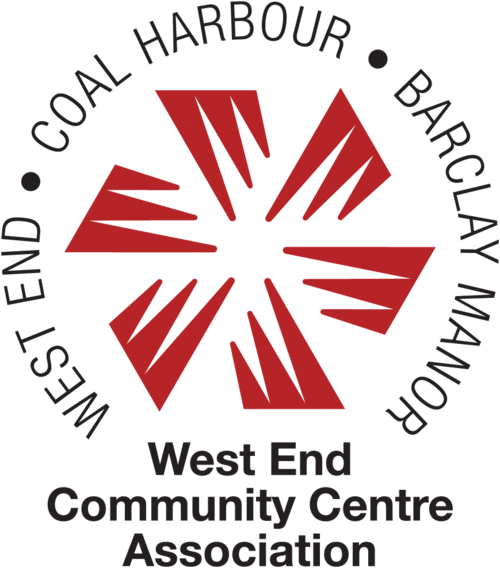A CLOSER LOOK
/TENANTS HIT WITH “CAPITAL EXPENSE” RENT INCREASES
by John Streit
(click images to enlarge)
For people searching for a place to rent in the West End, the sticker shock can be downright – shocking. With a vacancy rate under one percent according to the Canada Mortgage and Housing Corporation, landlords can pretty well charge whatever they want.
THE NEW LOOK OF A WEST END LANDMARK, THE GABRIOLA.
According to Zumper, a website used by millions of renters to find houses, rooms, condos or apartments for rent, the average median rent in the West End for a one-bedroom is $2,700 a month. That’s up a whopping 19 percent or $425 increase compared to 2022.
(links to websites related to this story are listed below)
Potential renters are sure to be looking at the sixteen new rental units available this month at the historic Gabriola on Davie and Nicola. Built in 1901 by B.T. Rogers and used as everything from a one-family home to two restaurants (who can forget the opera singing servers at the Macaroni Grill?), the interior of the Gabriola has been completely remodelled to include quartz countertops, stainless steel appliances and LED lighting. Four in-fill three-bedroom townhomes have been built on the northeast corner of the property. The rent? A studio is $2,150, two-bedroom is $3,895, while the townhomes are going for $5,995, ($71,940 a year) a month.
With this historically high-priced housing market in mind — not only in the West End but in surrounding Vancouver neighbourhoods as well — many West End renters are digging-in and trying to protect the precious space they have, and the often “affordable” rents they pay. The potential of a so-called renoviction, demoviction or landlord family-related eviction is always a threat in a province described in a recent UBC study as having the highest rate of no-fault evictions in Canada.
A situation gaining traction in the West End is a special rent increase being imposed by some landlords above the two percent allowed (no increase in 2021 and 1.5 per cent per unit in 2022) by the provincial government this year. The Additional Rent Increase (ARI) is meant to pay for eligible capital expenditures or expenses.
According to the province, examples of capital expenditures include replacing an asphalt roof at the end of its life, updating single pane windows or a new boiler. Non-eligible costs are ones that result from inadequate repair or maintenance by the landlord, where the landlord has been paid from another source (e.g. rebates, insurance), and routine maintenance like cleaning carpets, repairing a leaky pipe under a sink or painting walls.
ZACHARY COUMONT WITH THE VANCOUVER TENANTS UNION.
Zachary Coumont with the Vancouver Tenants Union (VTU) has lived in the West End for three-and-a-half years. “It has really been amazing to see neighbours come together and support each other in unexpected ways over the past few years, even through challenging situations. It’s a beautiful and fun community to live in!” he said.
Coumont rents in a 199-unit tower near Thurlow and Nelson which is a little over 20 years old, just a kid in West End building terms. “The building was sold to a corporation, based out of Toronto, in 2018. According to some of my neighbours, this represented a turning point in how the building was managed. It became more corporate and less of a community. They started doing large (and loud) renovations to suites as people moved out, including jack-hammering. We’ve been surrounded by construction, either in our building or outside our windows, for years,” he said.
In March of 2022, he received notice from his landlord of an Additional Rent Increase of $41.77 (or around two per cent) a month. This was on top of the two per cent allowable provincial rent increase coming in 2023. For other tenants, including families, singles and older folks the ARI was much higher. “I think our first reaction was confusion. My roommate and I had never heard about these sorts of rent increases. At the time, there was very little information out there about what everything meant, what to expect, or what to do about it. We reached out to a few organizations and politicians and got different answers each time. That was very frustrating,” Coumont said.
The West End Journal asked Coumont if he felt these special capital repairs were needed in his building. “There were eleven different expenditures our landlord applied for, each with at least a few different invoices and items within. There were a couple of invoices that were, for example, repairs to water leaks. I would say those need to be fixed! I don't think they should be able to raise our rent because of it though. Isn't that what rent is supposed to be for? In my opinion, some of the more egregious expenditures were $65,301 renovations to their staff office, $11,791 in new art for the lobby and $22,260 in landscaping that had already been removed or died when they made their application,” he said.
Coumont is now fighting the ARI through the Residential Tenancy Branch. “My roommate and I have attended and spoken at over 14 hours of hearings, researched legislation and policy for dozens of hours, combed through over 1,000 pages of evidence, made submissions on the ineligibility of each expenditure, and met with people who were willing to help guide us through this complex process. And that's just for our own rent increase,” he said.
THE GLENMORE ON BARCLAY STREET. (Google photo)
WEJ spoke with another West Ender (who wished to remain anonymous and we’ll call Fred) who has lived in our neighbourhood for the better part of a decade and is going through a similar situation at a CLV Group-owned, ‘50s-built building on Barclay Street named The Glenmore. Fred loves the large apartments (compared to modern buildings) and the fact he is close to shopping and amenities. “I was shocked that they would try to pass on their costs to the tenants. If I wanted to pay these costs, I’d own property instead of renting,” he said.
Fred is facing an ARI of close to $100 a month and this is the start of additional increases in the future. “I believe that quite a few of the charges are really improvements made for marketing the property as rents have already gone up significantly in the past two years and they need a way to justify these increases. A lot of the charges relate to modernization of the lobby, common areas, landscaping and front signage, which seem to have been done to improve the look of the building but were not required. A big-ticket item was related to the elevator, but I believe that it was not maintained properly over the years,” he said.
Fred believes the province meant well to try and aid smaller landlords but like any loophole, “this can be exploited by the larger landlords,” he opined. “I believe that CLV is doing this with some of their other buildings as well as it seems to be their operating model to pass these costs onto their tenants. As a tenant, I am concerned about this rent increase as I think this should be the cost of doing business by the landlord and included in the rent itself – why should tenants pay for every minor bit of work done?” Fred added.
The Glenmore tenant is reviewing his Additional Rent Increase in preparation for a date with a Residential Tenancy Branch (RTB) arbitrator in August.
Doris Traynor lives in the Everest apartments on Barclay Street where all 53 units received an ARI and have a meeting at the RTB set for July 7. “I see the rent increase for capital expenditures as a very political and community awareness issue. Our particular landlords did their homework. Their application seems to fall completely within the guidelines. My question has been, how can this be in place and our local MLA and his office staff appear to be caught off guard and are playing catch up in actually reading and understanding the legislation? The West End, being so densely populated by renters, needs to become educated about this issue and pressure our representatives to do their homework and to get out and talk to us. This is an opportunity for community engagement,” Traynor said.
DAVID HUTNIAK, CEO OF LANDLORD BC. (LANDLORD BC PHOTO)
David Hutniak is CEO of Landlord BC and says landlords are faced with many of the same post-pandemic challenges experienced by people and industry across the province.
“Specific to our sector we have seen operating expenses (taxes, utilities, insurance, maintenance etc) increasing exponentially, increasing costs for equipment due to supply chain issues, a shortage of trades [people] and those that are available substantially increasing their fees, labour shortages for the management of properties and residents, inflationary pressures, and one of the biggest impacts are higher interest rates. Our sector is highly sensitive to interest rates for the operation of rental housing and even more so for the construction of new rental housing (purpose-built rental). These challenges have been further exacerbated by government policy with the most notable being their intervention in the maximum annual allowable increase formula process. In 2020 and 2021 we had a rent increase freeze which we understood and accepted. In 2022 the allowable increase was 1.5 percent according to the formula in the RTA. In 2023 the allowable increase was supposed to be 5.4 percent according to the RTA formula but was capped at 2 percent by the government. This combination of exponentially increasing expenses and caps on rent increases are unsustainable and have created significant uncertainty in the sector. You can’t operate any business on year over year negative cash flow,” Hutniak said.
Hutniak says the province sought input from Landlord BC on crafting the ARI and believes it’s a must because much of BC’s rental stock is old and approaching the end of its functional life.
“Even the most robustly maintained buildings in the market reach a point where major capital expenditures are required for the health and safety of the occupants. These capital expenditures are typically building systems like HVAC, roofs, electrical, plumbing, all of which are costly to repair. The Additional Rent Increase process is a transparent process subject to very narrow criteria for eligible capital expenditures all requiring the final approval of an arbitrator. The process is generally very onerous and time-consuming and provides for very little capital expense recovery, and thus the vast majority of landlords are not pursuing the ARI process. Again, the scale of recovery of the total expenditures is very small in comparison to the cash outlay by the landlord for the capital expenditures. As the association representing the sector, we felt that the government unnecessarily eliminated a maximum annual allowable increase formula that was easily understood and that worked in Sept 2018 (the 2%+ CPI was changed to just CPI). The ARI was the government’s solution to “compensate” for the gap left by this decision. It has not,” he argued.
Zachary Coumont maintains this rent increase “loophole,” as some have called it, is being abused. “It feels like some landlords are putting ineligible expenditures in their applications to see what they can get away with, and there are no negative consequences for doing so. Depending on the arbitrator they get, what arguments they make, and if any tenants speak against it, sometimes they get approved. Even if they are denied, it's a waste of time for the system and for any tenants involved. It also seems that the "mom and pop" landlords some people claim this legislation was intended to help don't even know about it. Every application I know about has been at a building owned and/or managed by a REIT [Real Estate Investment Trust] or other investment firm. They don't need the money to make these repairs; it is simply another income opportunity for them,” Coumont said.
WEJ asked Hutniak if landlords are facing much pushback due to the ARI.
“Frankly, there shouldn’t be any pushback. These investments are ultimately for the health, safety and comfort of residents. Landlords are providing a service and making substantial investments to improve these buildings for the tenants. It is not unreasonable to expect the residents to bear some small share of that cost, particularly in light of the fact the increases resulting from ARI are typically nominal. What our members have expressed to us is that when they pursue ARI they get the sense that a small group of “advocates” appear to be intervening. Their sense is that these “advocates” are targeting this government policy for their own politically motivated objectives. We rely on our members for input on a wide range of issues,” Hutniak said.
BC Housing Minister Ravi Kahlon. (Province of BC photo)
B.C.’s Minister of Housing Ravi Kahlon tells the WEJ his government has been focused on the province’s renters but recognizes landlords’ costs have increased.
“Previously, the formula for the annual allowable ARI was the inflation rate plus an additional two percent. The Rental Housing Task Force heard from renters who struggled to afford the maximum ARI. As such, the Task Force made an early recommendation to only allow annual rent increases equal to the inflation rate, removing the automatic two percent yearly increase. The average tenant has saved more than $1,000 each year as a result of the removal of the additional two percent annual rent increase. At the same time, the Task Force heard from landlords that removing the additional two percent would make it difficult for landlords to maintain their rental properties. Because of this, the Task Force recommended that government introduce a process through which landlords could apply for modest additional rent increases above the allowable annual amount when they complete renovations and repairs to their rental units,” Kahlon said.
The Task Force was chaired by West End - Coal Harbour MLA Spencer Chandra Herbert.
West End - Coal Harbour MLA Spencer Chandra Herbert.
As far as stats, Kahlon said since the process was introduced in 2021, the Residential Tenancy Branch has received almost 200 ARI applications. “On average, each application related to 44 rental units. There are approximately 669,000 renter households in BC. As such, only 1.3 per cent of rental households in BC have been named in an ARI capital expenditure application,” according to the housing minister.
So, what if you and your neighbours have been slapped with an Additional Rent Increase? Coumont, through Vancouver Tenants Union, has some advice.
“Document as much as you can. Is there a truck for a plumbing company at your building? Take a photo and put it in an album on your phone; photos should have the date and time built in! Is there a notice about lobby renovations? Take a photo of the lobby (as a "before" photo) and the notice. Is there an email about the water being shut off for major repairs? Save that email! This information may be useful in fighting against unfair increases,” Coumont said.
Coumont also advises that you reach out to other tenants going through the same situation and organizations that can help. “The Tenant Resource & Advisory Centre (TRAC) is one such group. They are sometimes able to represent you at the hearings, and they've had some great successes against these applications! There are also several members of the Vancouver Tenants Union who have been through this process, and are happy to help other tenants learn from their experiences collaborating with their neighbours to argue against ineligible expenditures,” he said.
Coumont has also created a website to help tenants find resources when faced with an ARI. “It’s information we wish we had when we started! We'll also be working with our neighbours and elected officials to find ways to improve this legislation and surrounding process, making it less stressful, opaque, and time-wasting for tenants,” he said.
The West End Journal asked David Hutniak if Landlord BC members would like to see anything changed or updated.
“When we became involved the first thing we said is that the ARI process needs to be completely transparent, which it is, and simple to administer, which it’s still not. In a perfect world, we would prefer to return to the 2%+CPI formula and eliminate the ARI process entirely. This is not likely to happen, even though it would be to the advantage of tenants and landlords. The rovince is continuing to review the ARI process to create more clarity and efficiencies in the process so we will support them in their efforts to do so,” Hutniak said.
At this time, Housing Minister Ravi Kahlon maintains, “the province is not considering a return to 2%+CPI rental increases.”
HOW THE ARI PROCESS UNFOLDS
Landlords may apply to the Residential Tenancy Branch (RTB) for additional rent increases for eligible capital expenditures.
When a landlord applies, they will be provided a Notice of Hearing package. It will include details of the application that the landlord must serve to each tenant involved in the rent increase. The package will also contain details of a teleconference hearing that tenants can participate in and a dispute code used to submit evidence if the tenant believes that the costs the landlord is claiming are not eligible.
If successful, the RTB’s decision will set out the eligible rent increase amount that is granted by the Director based on the formula.
To impose the additional rent increase, the landlord must provide each tenant with a Notice of Rent Increase that includes a detailed breakdown showing how the rent increase is applied.





